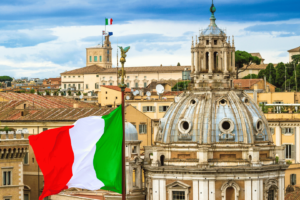Tax System in Malta – 2021
Introduction
If you’re considering immigrating to Malta, you probably want to learn more about the tax system. Like most countries, the tax system in Malta is complex, and varies based on the type of tax you will be paying. Let’s take a closer look at the types of tax in Malta, who pays which kinds of tax, and what kind of tax rates you might be subject to.
Tax Types in Malta
In Malta, there are tax systems that apply to individuals as well as to corporations. If you earn a living in Malta, you will be subject to income tax, whether you’re an employee or self-employed. Depending on your tax residency status, you may also be text on income from outside of Malta. This may apply to international pensions, earnings from business ventures in other countries, interest on investments and other kinds of income.
Individual Taxation in Malta
Like most countries, personal tax in Malta is based on a sliding scale. This means that the more you earn and the higher your net worth, the more tax you are likely to pay. There are several types of individual taxes that you may pay in Malta. These include:
Income Tax
Everyone who earns an income in Malta, whether you are a full time resident or a temporary worker, is required to pay tax on their income. There are two types of individual income tax in Malta: the so called non filer system and the return filing system. If you are an employee and all your income comes from your employer, you may qualify to be a non filer in this case all of your tax information is already available to the government, so they don’t require you to self assess. If you earn any other income or want to make any deductions from your taxes, then you will be required to file a self assessment.
Tax rates for income tax in Malta are based on the amount you earn. There are also different rates for single people, married people, and parents. Current rates are set out in the table below.
Tax Rates for Basis Year 2021
TAX RATES | |||
Income Range (EUR) From | To | Rate | Non Taxable Amount (EUR) |
Single Rates | |||
0 | 9,100 | 0% | 0 |
9,101 | 14,500 | 15% | 1,365 |
14,501 | 19,500 | 25% | 2,815 |
19,501 | 60,000 | 25% | 2,725 |
60,001 | and over | 35% | 8,725 |
Married Rates | |||
0 | 12,700 | 0% | 0 |
12,701 | 21,200 | 15% | 1,905 |
21,201 | 28,700 | 25% | 4,025 |
28,701 | 60,000 | 25% | 3,905 |
60,001 | and over | 35% | 9,905 |
Parent Rates | |||
0 | 10,500 | 0% | 0 |
10,501 | 15,800 | 15% | 1,575 |
15,801 | 21,200 | 25% | 3,155 |
21,201 | 60,000 | 25% | 3,050 |
60,001 | and over | 35% | 9,050 |
Social Security Taxes
Like other countries in Europe, Malta has a robust Social Security system. In order to fund this system, additional Social Security taxes are levied on all employees and registered self-employed people. A portion of this is paid by the employee in the case of employed people, and a portion by the employer. self-employed people pay a different rate.
The money collected from Social Security taxes go to funding public health care unemployment benefits and other social welfare benefits. There are different Social Security rates for people in different age groups and social situations. It’s a good idea to check with the tax authority which category you fall into.
Corporate Taxation in Malta
Like most countries, corporations in Malta are subject to corporate taxes. The rate for corporate taxation in Malta is 35%.
If your corporation is registered in Malta, you will be subject to corporate tax on all your global earnings. If your corporation is registered elsewhere, but operates in Malta you will be subject to Maltese corporate tax on the portion of your income generated in Malta
Tax Refunds in Malta
Like most countries the tax system in Malta includes several kinds of credits and deductions which may make you eligible for a refund. Some things which may be eligible for deduction and may result in tax refunds include:
- School fees for special needs children
- Childcare expenses
- Fees paid to facilities that care for the elderly
- School fees for children in primary or secondary school
- Certain sports fees for children under the age of 16
- Some community support services and respite homes
In most cases, the fees mentioned above will need to be paid to a recognized institution. You may also be required to provide invoices and backup documentation.
Businesses may also deduct certain expenses which may result in a refund, including losses research and development and bad debts.
Tax Incentives in Malta
There are some tax incentives that apply specifically to expatriates who are working in Malta. The tax system in Malta includes incentives and deductions for accommodation vehicles relocation expenses and other costs related to moving to Malta.
Individuals and businesses can also access tax incentives related to pension plan contributions.
There are also tax incentives in Malta for certain qualifications in the higher education system. These apply mainly to masters and PhD level qualifications.
It is always recommended that you check the latest tax regulations for any deductions an incentive that may apply to your taxes. As with most countries the tax system in Malta is reviewed and revised on an annual basis and regulations and tax rates may change.
Tax Procedures in Malta
If you are an individual who lives in Malta, and you earn an income that is subject to Maltese tax, you first need to register as a taxpayer. Whether you are employed in Malta or not, you are legally required to register as a taxpayer if you live in the country.
Anyone who is required to file a tax return in Malta, must do so by the 30th of June each year. Late filing may result in fines and penalties
Value Added Tax (VAT) in Malta
Any business that provides products or services in Malta is required to register for VAT. The VAT value added tax rate in Malta is currently 18% on most goods and services. There are reduced rates of 5% and 7%, which applied to limited basic services and products. The list of reduced VAT rate items is available on the government website.
Double Tax Treaty
Like many countries, the tax system in Malta includes double tax treaties, which ensures that individuals from the countries that are included in tax treaties are not subject to double taxation.
Currently Malta has double tax treaties with 70 countries around the world. The country in which you are required to pay tax will depend on your tax residency and other factors. If there is any doubt about where you are required to pay your taxes, contact the tax authorities in your home country and in Malta to confirm.
Benefits of the Malta tax system
Like the rest of Europe, Malta has robust social services. These include things like public healthcare maternity and paternity benefits, unemployment benefits, disability benefits and more. A large portion of the taxes that are levied in the country of Malta, go towards funding those social services. As a resident of Malta, who pays tax in the country, you will be able to access those services.
Frequently Asked Questions
Is there any amount of income that is tax free in Malta?
Unlike some countries there is no minimum earnings threshold for taxes in Malta. Regardless of how much or how little you earn you will be subject to income tax. However, anything you earn above 15 million euros will not be subject to income tax.
How much income tax will I pay in Malta?
Income tax rates in Malta are based on your earnings and can be anything between zero and 35%.
Is Malta a tax haven?
No. Technically Malta is not a tax haven however there are several incentives and benefits for corporations and high net worth individuals that make it an attractive option.
Is anyone who lives in Malta tax exempt?
no. Unless a double taxation treaty applies. You will be required to pay taxes on any income you earn in Malta. This applies whether you are a temporary foreign worker or a resident of Malta. The difference is that anyone who lives in Malta for more than six months of the year is considered a tax resident and will usually be subject to taxation on their global income.
Will I pay capital gains tax in Malta?
Capital gains tax does apply in Malta, but if you are not a tax resident of Malta, you will not be subject to capital gains tax on capital gains received from outside of Malta. If you are a tax resident of Malta or are married to a tax resident of Malta, you will be subject to capital gains tax.
What are the penalties for tax evasion in Malta?
Contrary to popular belief, Malta is not a tax haven, and you cannot live in Malta tax free. Although there are significant benefits to doing business in Malta, you will still have to stay in good standing with your taxes. If you are found to have been evading tax in Malta, you may be subject to hefty fines, and incarceration.
If you would like to know more about the tax system in Malta, contact us today to book a free and comprehensive consultation with one of our experts.




